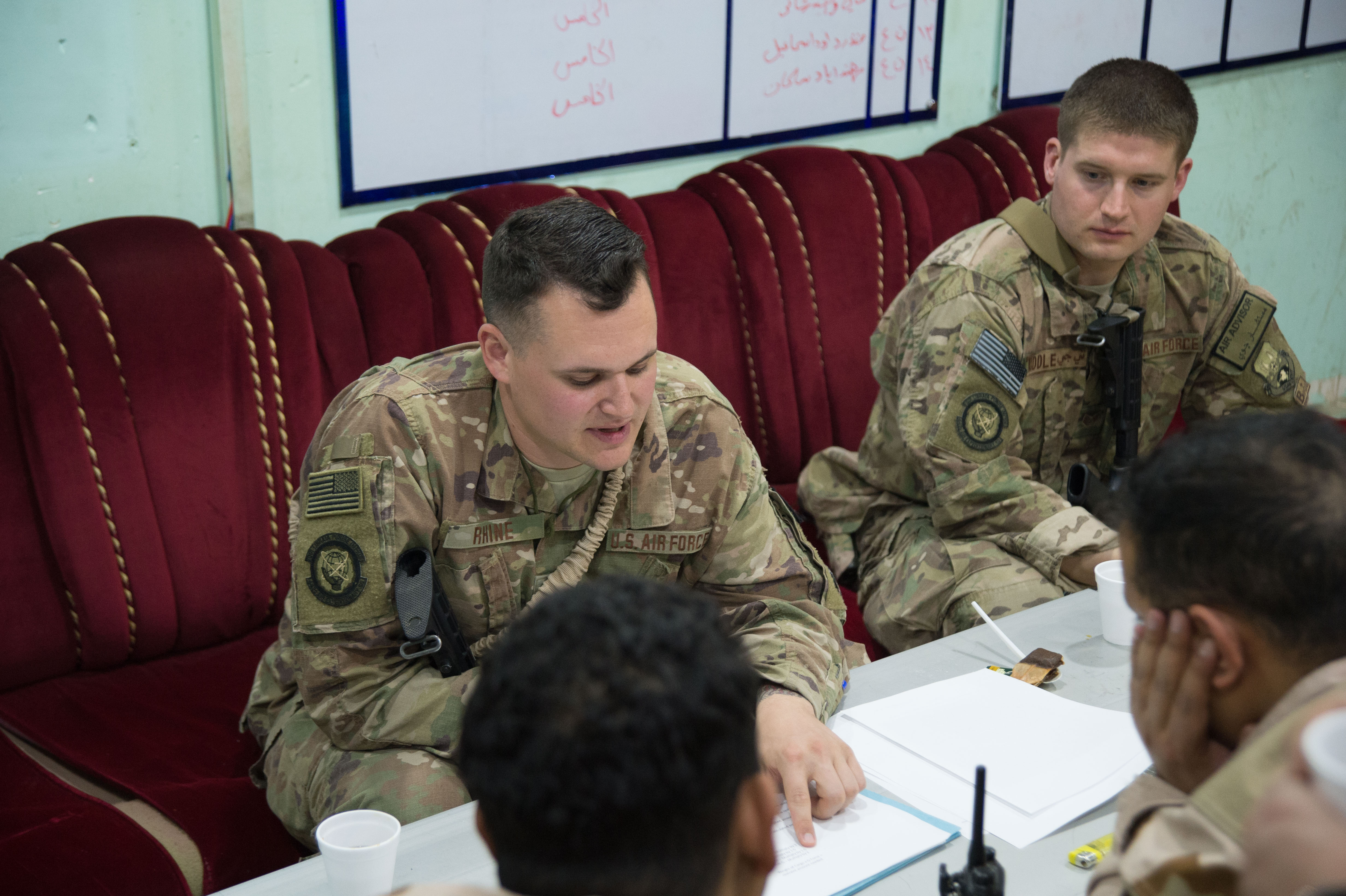
SSgt. Dakota Rhine, 442nd Air Expeditionary Squadron noncommissioned officer in charge of the Baghdad aerial port (left) and SSgt. Timothy Riddle, 370th Air Expeditionary Advisory Squadron, air advisor, review revised technical and training manuals with Iraqi Air Force Airmen in Baghdad, Iraq, Jan. 16, 2018. Air Force photo by SSgt. William Banton.
The Air Force presence inside Iraq is changing, with a new team focused on building Iraq’s aviation infrastructure to keep the fight against ISIS going while the broader US presence draws down.
Air Forces Central Command and Combined Joint Task Force Operation Inherent Resolve established the Coalition Aviation Advisory and Training Team in Iraq on Feb. 1 to help Iraq build its aviation enterprise, according to an AFCENTrelease.
The team will work alongside the Office of Security Cooperation-Iraq to train, advise, and assist members of the Iraqi Army Aviation Command, Iraqi Air Defense Command, and the Iraqi Air Force.
This is part of a change in mission by the overall coalition, which will now “tailor our forces” in consultation with Iraq to ensure a “lasting defeat” of ISIS, coalition Director of Operations US Army Brig. Gen. Jonathan Braga said in a release.
The coalition and its partner forces have shrunk ISIS’s territory by 98 percent, but since ISIS is transitioning into an insurgency an ongoing presence will help Iraq stabilize the country. US service members are still “invited guests” in the country, and will help with policing, border control, and military capacity building, along with enabling diplomatic and economic assistance.
The Associated Press witnessed the drawdown beginning, reporting that contractors and US military personnel have begun to leave Al-Asad Air Base in Iraq en route to Afghanistan.
As of late September, there were 8,892 troops in Iraq. As part of an agreement between the US and Iraq, about 60 percent of all US troops will be withdrawn, AP reported.
“Military success has bought time, space, and security for non-military stabilization efforts to help the people of Iraq, and we look to facilitate the return of normalcy for Iraqis,” Braga said.